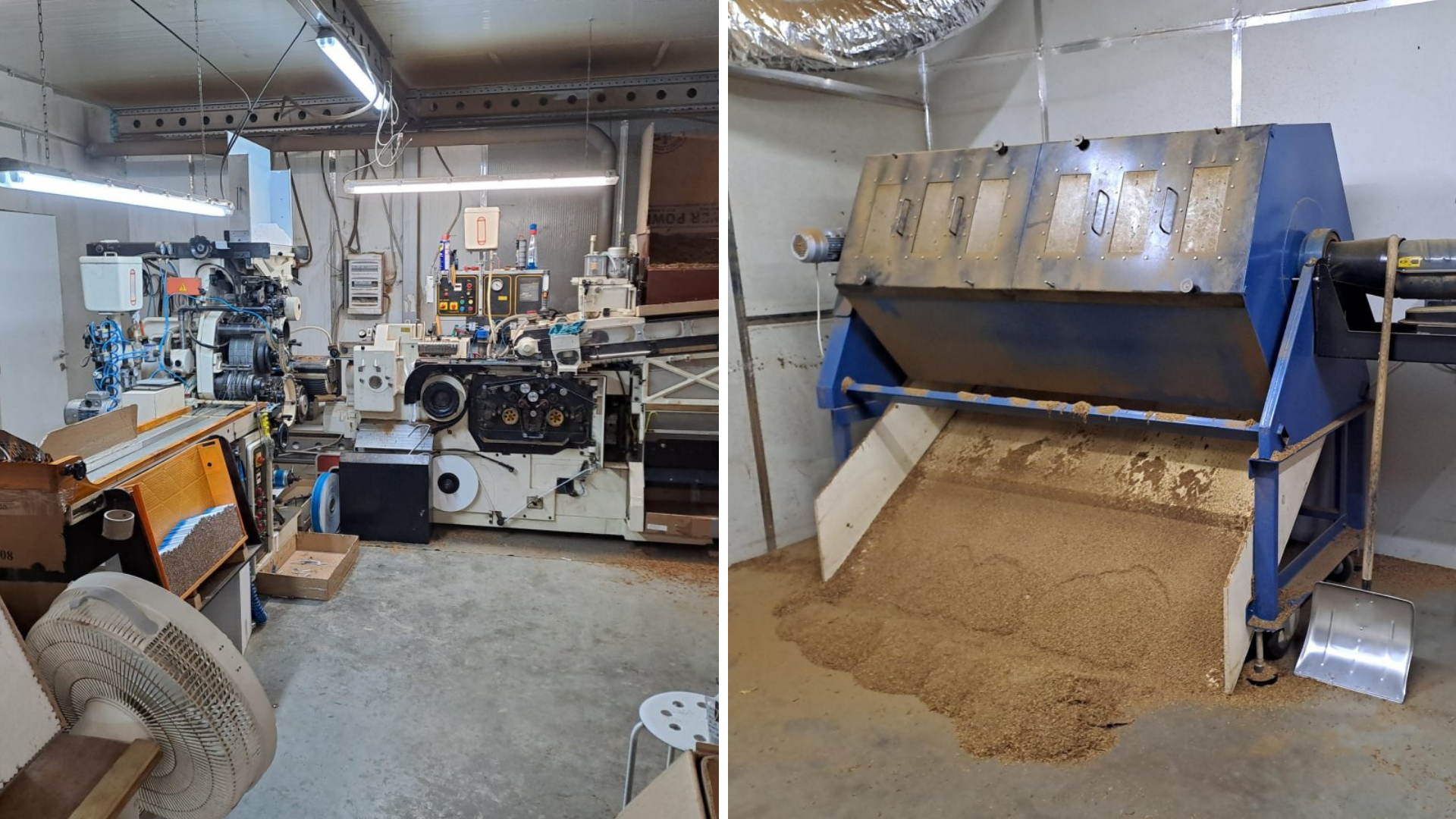For the 11th time this year, an illegal cigarette production site was dismantled by the Belgian authorities on Monday, the Ministry of Finance announced on Wednesday.
While this marks a new record number of illicit manufacturers uncovered within a year, it does not necessarily reflect an increase in criminal activity: "We know what we catch," explained a spokesperson for the Ministry of Finance, Florence Angelici.
However, Angelici confirmed that there is a general increase in demand for cheap illegal cigarettes, in part due to the rising prices of tobacco products. (An illegal cigarette business can refer to the production or sale of counterfeit tobacco products, as well as the sale of cigarettes without paying tax.)
The latest dismantling operation took place in East Flanders in a warehouse with a tobacco cutting line, a production line and packaging line. A total of 19 suspects from Ukraine, Romania and Lithuania were taken into custody for questioning.
Around 11 tonnes of tobacco and 5.6 million Rothmans and Marlboro Touch cigarettes were seized by the Belgian customs and local police on Monday. This amounted to a loss of €6.2 million for the State from evaded tax.

(Dismantled) illegal cigarette production. Credit: Ministry of Finance
In addition to the financial impact, illicit cigarettes come with a health cost as they facilitate the access to tobacco products and are not subject to quality controls, explained Angelici.
Around 13% of illicit cigarettes in the EU were consumed in Belgium last year, according to a report commissioned by the tobacco group Philip Morris International. Angelici highlighted that many of the cigarettes produced in the country are not intended for domestic sales, but rather tend to be smuggled to countries with greater demand for the product such as the UK and France.
The proximity to booming illegal cigarette markets, as well as the ports and large road networks of the country, make it "very interesting" for those involved not only in the production but also smuggling of the illicit products, said Angelici. Earlier this year, four million counterfeit cigarettes were seized by customs at the Port of Zeebrugge in West Flanders.
While domestic illegal manufacturers are sometimes independent, this isn't always the case. "It's a very well organised criminal activity. You will have people specialised in installing machines, then those who will bring trucks. It's a logistic network," said Angelici. "Maybe it's not the same criminal network but they use the same resources."
Tackling the issue on a European or global scale is not easy due to the different national legislations. However, Angelici sees Belgian authorities' record achievements as a positive sign of the specialised competencies of the country.
Almost 205 million cigarettes were seized in Belgium in 2024. This represents around €96 million in evaded tax, according to the Ministry of Finance.

